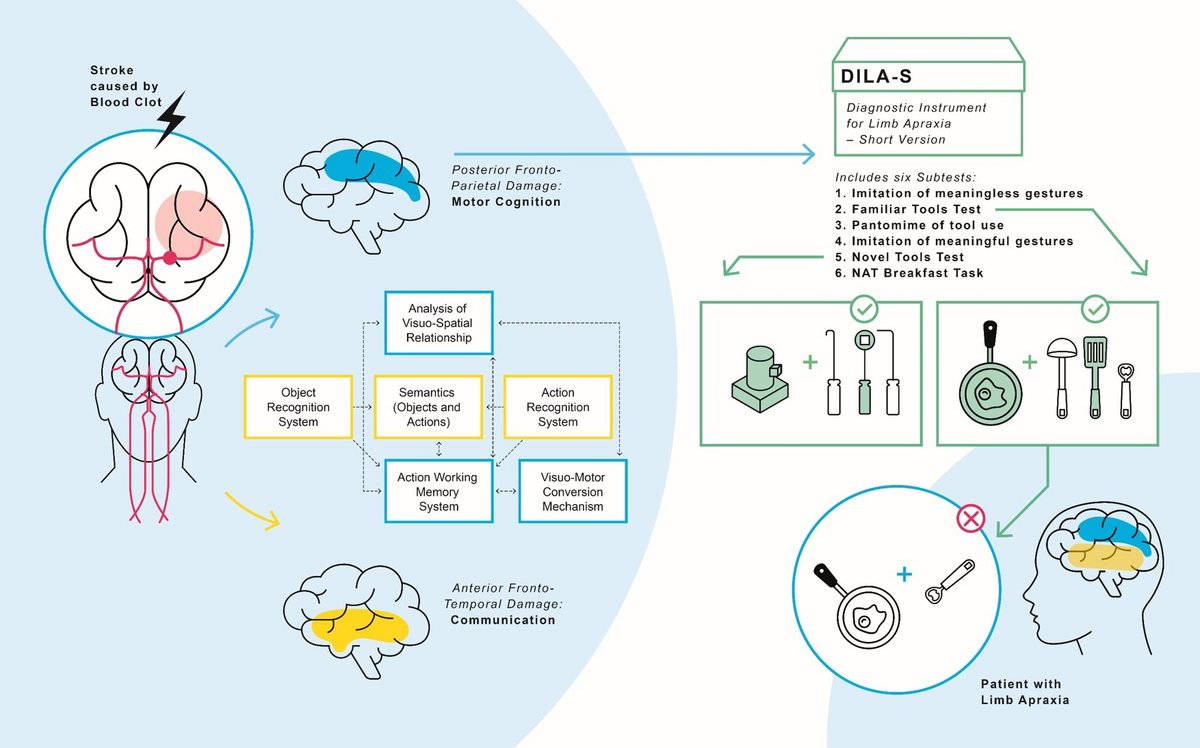EFFECTS OF STRESS / LOAD
We examine how stress affects action planning (see main topic below). We also deal with the topic of exhaustion. Approx. 50-75% of patients with multiple sclerosis (MS) suffer from chronic exhaustion and, according to current meta-analyzes, approx. 32% of Covid-19 patients are affected. Chronic fatigue can lead to significant restrictions in quality of life, coping with activities of daily living and the ability to work. For a better understanding of the symptoms, we would like to investigate the following questions: What is fatigue or fatigability, which factors influence this massive exhaustion, and how can we comprehensively diagnose the complex syndrome?
ACTION
The central aspect in our research is MOTOR COGNITION: how we plan and produce movements and actions, especially when these involve tools or objects. We aim to foster applied studies at the direct interface with actual clinical needs to tackle central problems of our aging society. In addition we investigate the underlying behavioral and neuronal mechanisms. Our work comprises three major topics:
Different routes to actions
Many researchers believe that there are different routes to produce actions. One aspect we would like to investigate in this domain is the question of whether and how we can make use of this finding for rehabilitation of Motor Cognition. If one route is damaged, can we use the other?
Decision Making in Motor Cognition
Is my cup of coffee within reach? Action planning includes decisions about whether such movements are at all possible. Cues in the environment, but also knowledge about our own bodily capabilities play an important role (so called perception of affordances). Action and perception processes must interact to perform these decisions. We would like to study whether and how cognitive decline and/or bodily changes due to aging or sudden paralysis may affect these abilities.
Tool Use
Every day we use many tools and objects. Brain damage for example may disturb the integration of acquired knowledge about tools and objects into an action plan. As a result it occurs as if the patient with so called limb apraxia lost his knowledge about how to properly select and use tools and objects. In Germany, this affects approximately 30 000 patients yearly. The disorder is a strong determinant in the dependence on help with activities of daily living. We aim to refine diagnostics and develop rehabilitation approaches.

